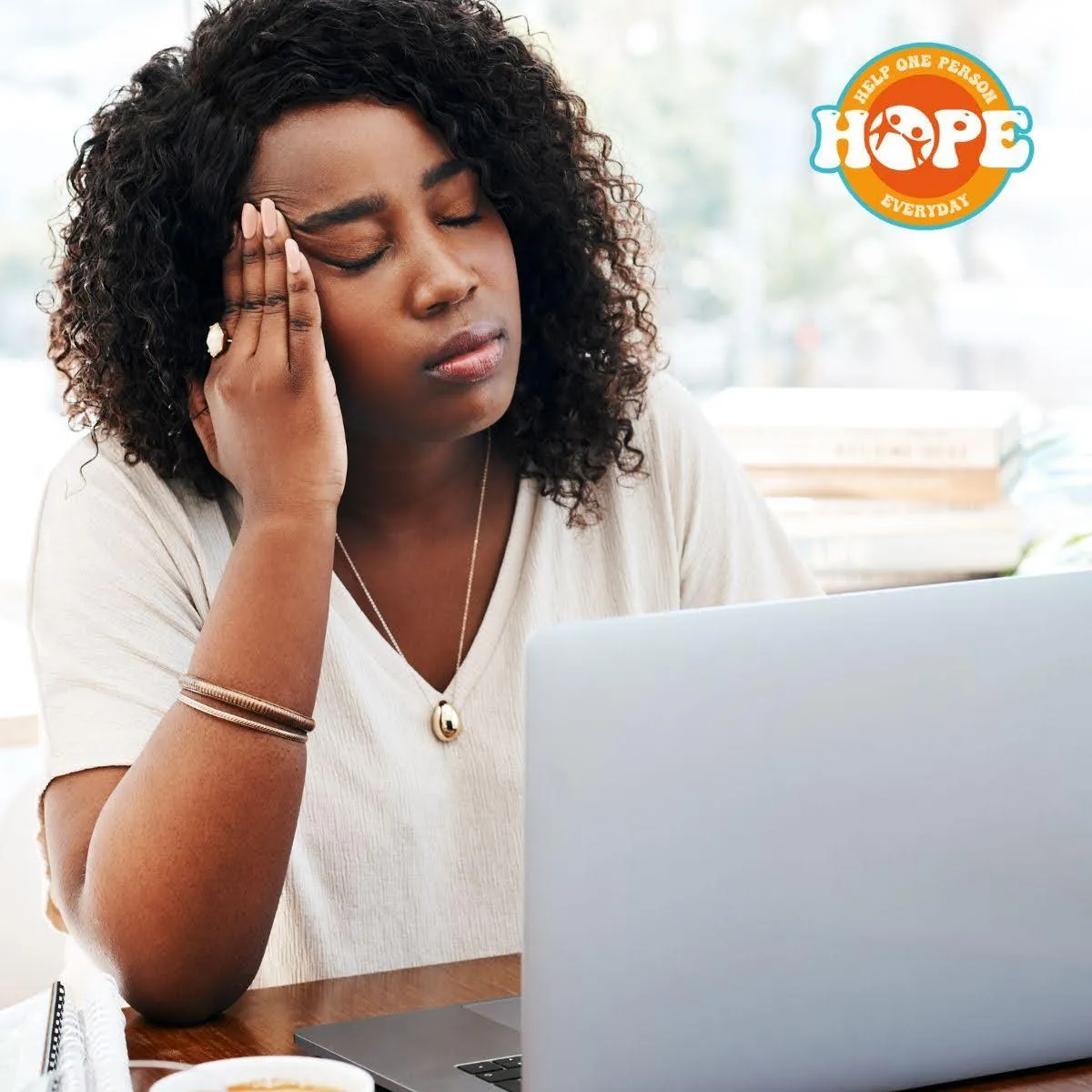
The Antidote to Burnout: Helping Without Overextending
The Antidote to Burnout: Helping Without Overextending
You want to help others. You feel the call to serve. But what happens when your own cup is empty?
In a world that glorifies hustle and self-sacrifice, burnout is all too common - especially among those who care deeply. The HOPE philosophy - Helping One Person Every day - doesn't ask you to give everything you have. Instead, it invites you to do one intentional act each day, sustainably and joyfully.
Why Burnout Happens
Burnout isn't just about being busy. It's about chronic emotional exhaustion, a feeling that your efforts no longer make a difference, and disconnection from the things that once brought you purpose.
If you’ve ever felt resentful after helping someone, or emotionally depleted by the end of the day, you’re not alone. The issue isn’t that you’re helping - it's how and how often.
The HOPE Alternative
Matt Halloran’s TEDx message reframes service not as a never-ending sacrifice, but as a focused practice. HOPE isn't about giving until it hurts - it's about giving in ways that heal.
One person. One moment. One act of kindness. That’s it.
This shift creates boundaries. It offers you permission to show up powerfully without overextending.
Sustainable Service in Action
Helping others doesn’t have to drain you. It can nourish you, when practiced with intention.
Compliment someone sincerely on their work.
Leave an uplifting comment on a friend’s post.
Pick up coffee for your partner or coworker.
Offer a listening ear - but only when you have the emotional bandwidth.
These aren’t heroic. They’re human. And they’re enough.
How to Avoid Compassion Fatigue
Set limits : Boundaries protect your energy. Be honest about your capacity.
Pace yourself : You’re not responsible for fixing everyone.
Reflect : Ask, “Did this feel good to give?” If not, reassess how you’re helping.
Recharge : Helping should be paired with rest, creativity, and joy.
HOPE is about momentum, not martyrdom.
Practice Without Pressure
You don’t have to perform your acts of kindness on a stage. You don’t need applause. In fact, the most meaningful help often happens quietly and personally.
And when it’s done in moderation, it feeds you as much as it serves others.
A New Kind of Generosity
Helping doesn’t require grand gestures. It asks for consistency, authenticity, and boundaries. Real generosity includes yourself.
Today, choose one thing that feels good to give - and give it. Without guilt. Without expectation. Without exhaustion.
Because a world of people giving one thing each day - well, that changes everything.
Raising Hopeful Kids: Teaching the Next Generation to Help One Person Every Day
Raising Hopeful Kids: Teaching the Next Generation to Help One Person Every Day
In a world where fear, disconnection, and distraction are common, raising children who care about others is a radical act. It’s not enough to teach kindness - we must model it daily. That’s what the HOPE philosophy offers: a repeatable way to build compassion into the fabric of a child’s life.
Helping One Person Every day is a practice kids can understand, do, and grow with.
Why Children Need HOPE
Children are naturally empathetic. But without guidance, that empathy can be overshadowed by cultural messages of competition, individualism, and digital detachment.
By practicing HOPE at home, you give your children a framework to express their kindness, take action, and see that they matter.
Lead by Example
Matt Halloran’s TEDx talk reminds us that children become what they see. If you help one person every day - and talk about it - your children learn that helping is part of being human.
Share your daily acts:
“I helped a coworker finish a project.”
“I bought lunch for someone who needed it.”
“I told a friend how proud I am of them.”
Let them see your humanity in motion.
Teaching Tools for HOPE
Dinner Ritual : Ask “Who did you help today?” every evening. Celebrate effort over outcome.
Kindness Calendar : Let kids pick one small act of kindness to do each day.
Reflection Journal : Help them write down how helping made them feel.
These aren’t chores - they’re invitations to connection.
Small Acts, Big Impact
Children don’t need to save the world to make a difference. Their version of HOPE might be:
Sitting with a lonely classmate
Helping a sibling with homework
Saying thank you to the bus driver
The ripple begins there.
The Long-Term Benefits
Kids who are raised to care for others tend to:
Have stronger emotional intelligence
Form healthier relationships
Develop a deeper sense of purpose
And in a world craving kindness, they become lights others can follow.
Start Today
You don’t need a curriculum. You need presence. You need awareness. And you need the willingness to model what you hope your children will become.
Raise them with HOPE. Raise them with heart.